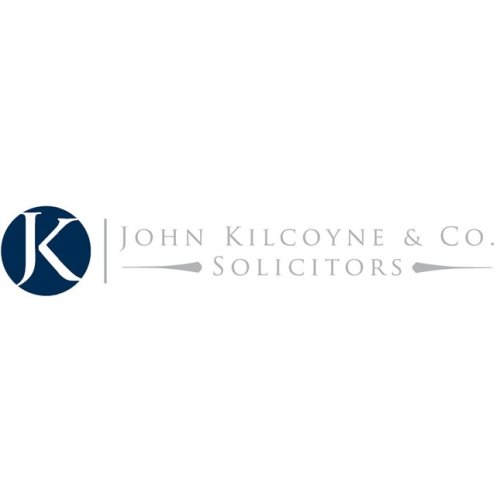Best Collaborative Law Lawyers in Glasgow
Share your needs with us, get contacted by law firms.
Free. Takes 2 min.
Free Guide to Hiring a Family Lawyer
List of the best lawyers in Glasgow, United Kingdom
About Collaborative Law in Glasgow, United Kingdom
Collaborative Law in Glasgow, United Kingdom, functions as an innovative approach to resolving disputes outside of traditional courtroom settings. Originating as a means to address family law disputes, it has since expanded into other areas such as business disputes and workplace conflicts. This method promotes a cooperative atmosphere where parties, guided by their respective lawyers, work together to reach a mutually beneficial agreement. The aim is to avoid adversarial court processes, which can be lengthy, costly, and emotionally taxing. In Glasgow, Collaborative Law is well-regarded for its ability to maintain relationships while efficiently solving legal issues through open communication and shared problem-solving techniques.
Why You May Need a Lawyer
There are numerous situations in which individuals might seek the guidance of a Collaborative Law lawyer in Glasgow. Common scenarios include:
- Divorce and Family Disputes: Collaborative Law can help couples amicably negotiate terms regarding child custody, division of assets, and spousal support.
- Business Disagreements: Business partners can resolve disputes over contractual obligations or business dissolution without recourse to litigation.
- Workplace Conflicts: Collaborative processes can assist employers and employees in settling disputes related to employment contracts or workplace conditions.
- Property Disputes: Collaborative Law can facilitate peaceful resolutions to disagreements over property boundaries or lease agreements.
- Settlement Negotiations: Individuals involved in civil disputes may find a collaborative approach beneficial in negotiating out-of-court settlements.
Local Laws Overview
In Glasgow, Collaborative Law aligns with UK-wide legal frameworks but also benefits from specific local regulations supporting dispute resolution methods. Key aspects include:
- Voluntary Participation: Parties must willingly engage in the collaborative process and commit to avoiding court intervention.
- Commitment to Disclosure: All involved parties are required to be transparent and share pertinent information to facilitate an honest negotiation environment.
- No Court Agreement: If collaborative negotiations fail, lawyers involved must withdraw, and new counsel must be engaged for litigation, discouraging litigious threats.
- Professional Support: Access to neutral professionals, such as financial advisors or child specialists, is allowed to aid discussions and decisions.
Frequently Asked Questions
What is the role of a collaborative lawyer?
A collaborative lawyer advocates for their client’s interests by guiding negotiations, offering legal expertise, and promoting open communication between parties to reach a mutually acceptable settlement.
Is Collaborative Law suitable for all types of legal disputes?
No, it is primarily used for disputes where parties have a continuing relationship, such as family law or business partnerships, and both parties are willing to negotiate amicably.
How long does a collaborative process usually take?
The duration varies depending on the complexity of issues and the cooperation level between parties, but it generally takes less time than traditional litigation.
Can I use Collaborative Law if my partner or the other party doesn’t agree?
No, Collaborative Law relies on voluntary participation. If the other party does not agree, alternative dispute resolution methods or litigation may be necessary.
What happens if we cannot reach an agreement through Collaborative Law?
If negotiations fail, the collaborative process ceases, and parties must seek new lawyers for litigation as per the collaborative contract’s requirements.
How is privacy handled in Collaborative Law?
Collaborative Law processes are confidential, providing a private forum for dispute resolution without public record exposure.
Are agreements reached through Collaborative Law legally binding?
Yes, once finalized, agreements are typically drawn up as a formal contract and can be made legally binding by a court if necessary.
Can children be involved in the collaborative process?
In family law cases, children’s perspectives can be included indirectly through child specialists to ensure decisions are made in their best interests.
What costs are associated with Collaborative Law?
Costs can vary but are generally lower than litigation due to the reduced time and court involvement. Fees for lawyers and any involved experts must be considered.
How do I find a collaborative lawyer in Glasgow?
Seek recommendations from professional legal associations, search online directories for collaborative lawyers, or ask for referrals from those who have engaged in the process.
Additional Resources
For further assistance, the following resources may be helpful:
- Scottish Legal Aid Board: They offer support and advice for those needing legal assistance within Scotland.
- Resolution: A national organization helping individuals resolve disputes collaboratively without conflict.
- Law Society of Scotland: They provide guidance and resources to find accredited collaborative law professionals.
- Scottish Family Law Association: They offer resources specifically focused on family law matters in Scotland.
Next Steps
If you are considering Collaborative Law for your legal needs, the following steps may be useful:
- Research and understand the facets of Collaborative Law and decide if it fits your situation.
- Contact a collaborative lawyer in Glasgow to discuss your case and explore your options within this framework.
- Prepare all relevant documents and information pertinent to your case to facilitate effective discussions.
- Be open to negotiation and compromise, as these are core tenets of the collaborative process.
- Involve professionals, such as financial or childcare experts if needed, to provide additional insights during negotiations.
Lawzana helps you find the best lawyers and law firms in Glasgow through a curated and pre-screened list of qualified legal professionals. Our platform offers rankings and detailed profiles of attorneys and law firms, allowing you to compare based on practice areas, including Collaborative Law, experience, and client feedback.
Each profile includes a description of the firm's areas of practice, client reviews, team members and partners, year of establishment, spoken languages, office locations, contact information, social media presence, and any published articles or resources. Most firms on our platform speak English and are experienced in both local and international legal matters.
Get a quote from top-rated law firms in Glasgow, United Kingdom — quickly, securely, and without unnecessary hassle.
Disclaimer:
The information provided on this page is for general informational purposes only and does not constitute legal advice. While we strive to ensure the accuracy and relevance of the content, legal information may change over time, and interpretations of the law can vary. You should always consult with a qualified legal professional for advice specific to your situation.
We disclaim all liability for actions taken or not taken based on the content of this page. If you believe any information is incorrect or outdated, please contact us, and we will review and update it where appropriate.











